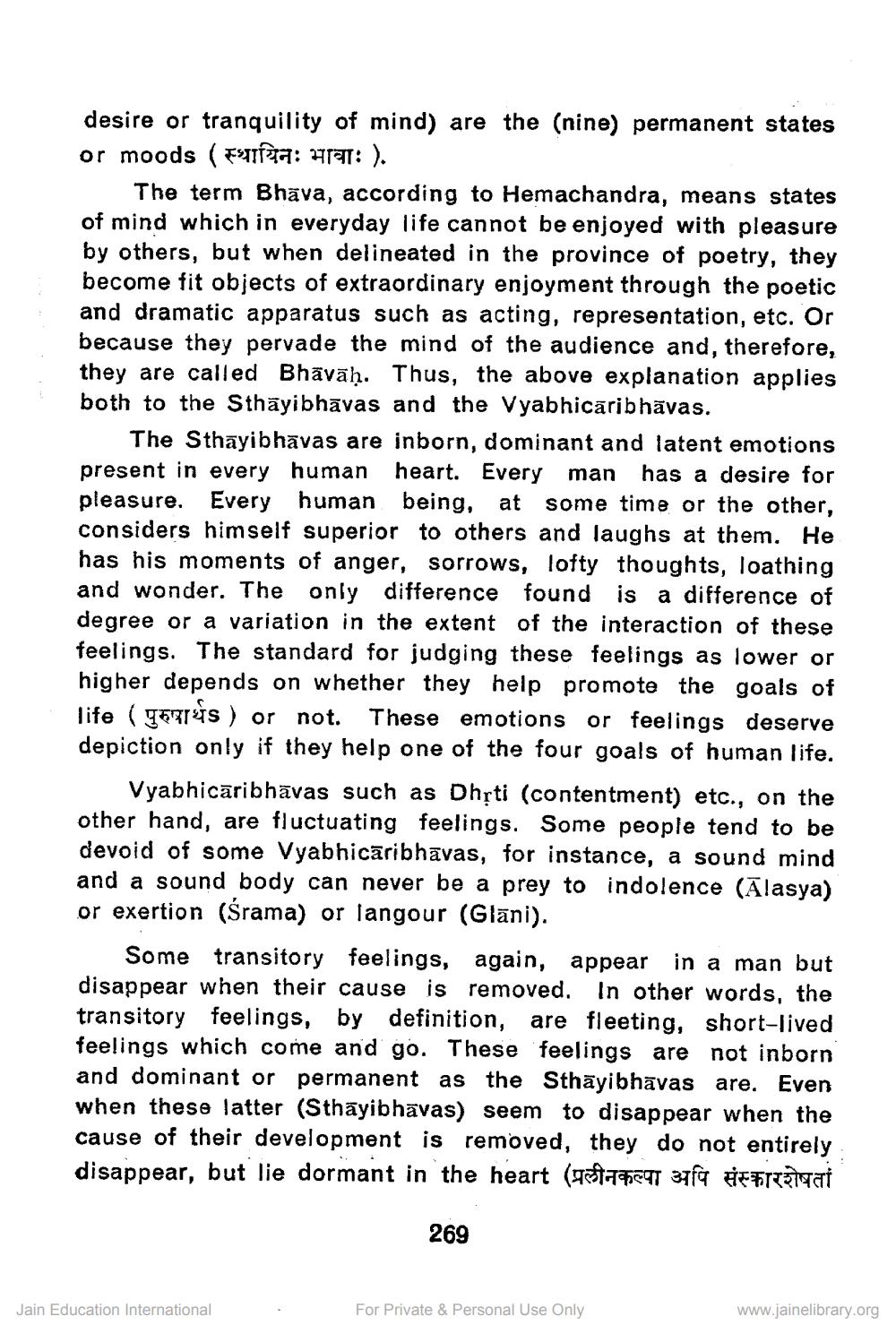________________
desire or tranquility of mind) are the (nine) permanent states or moods ( स्थायिनः भावाः ).
The term Bhava, according to Hemachandra, means states of mind which in everyday life cannot be enjoyed with pleasure by others, but when delineated in the province of poetry, they become fit objects of extraordinary enjoyment through the poetic and dramatic apparatus such as acting, representation, etc. Or because they pervade the mind of the audience and, therefore, they are called Bhavaḥ. Thus, the above explanation applies both to the Sthayibhāvas and the Vyabhicāribhāvas.
The Sthayibhāvas are inborn, dominant and latent emotions present in every human heart. Every man has a desire for pleasure. Every human being, at some time or the other, considers himself superior to others and laughs at them. He has his moments of anger, sorrows, lofty thoughts, loathing and wonder. The only difference found is a difference of degree or a variation in the extent of the interaction of these feelings. The standard for judging these feelings as lower or higher depends on whether they help promote the goals of life (gs) or not. These emotions or feelings deserve depiction only if they help one of the four goals of human life.
Vyabhicaribhavas such as Dhrti (contentment) etc., on the other hand, are fluctuating feelings. Some people tend to be devoid of some Vyabhicaribhavas, for instance, a sound mind and a sound body can never be a prey to indolence (Alasya) or exertion (Śrama) or langour (Glāni).
Some transitory feelings, again, appear in a man but disappear when their cause is removed. In other words, the transitory feelings, by definition, are fleeting, short-lived feelings which come and go. These feelings are not inborn and dominant or permanent as the Sthayibhāvas are. Even when these latter (Sthayibhavas) seem to disappear when the cause of their development is removed, they do not entirely disappear, but lie dormant in the heart (de fq HÒAÍ
Jain Education International
269
For Private & Personal Use Only
www.jainelibrary.org




